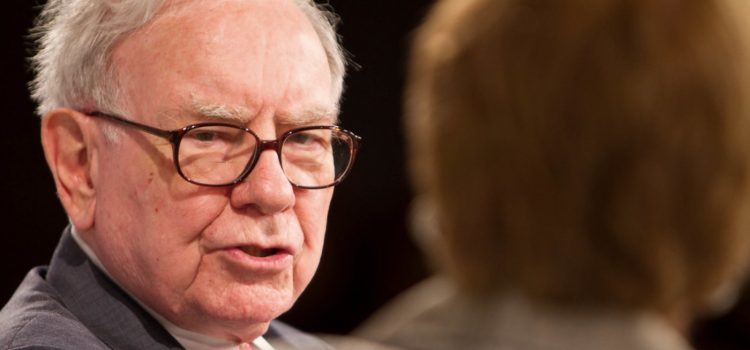

This article is an excerpt from the Shortform book guide to "Liar's Poker" by Michael Lewis. Shortform has the world's best summaries and analyses of books you should be reading.
Like this article? Sign up for a free trial here.
How did Warren Buffett help Salomon Brothers out of a hostile takeover? Why was the investment bank in danger to begin with?
In 1987, Ron Perelman and Michael Milken conspired together to take over Salomon Brothers at its most vulnerable time. But with a large loan provided by Warren Buffett, Salomon Brothers managed to avoid the nasty bid.
Keep reading to learn more about the heroic rescue by Warren Buffett and Salomon Brothers’ swift recovery.
Takeover Target: Salomon Brothers
Before Warren Buffett, Salomon Brothers came within a hair of falling victim to a hostile takeover bid. In September 1987, takeover magnate Ron Perelman (with funding from Michael Milken) moved to grab control of Salomon. Lewis explains why Salomon was vulnerable, the threat Perelman posed to Salomon’s management, and how Warren Buffett came to their rescue.
When junk bonds took off in the latter 1980s, Salomon Brothers kept out of the market, but not for any well-thought-out reason. In Liar’s Poker, Michael Lewis says it was mostly because Ranieri sabotaged any attempt by Salomon Brothers to join the junk bond business. Ranieri felt that bonds were his kingdom and that his power would be threatened by any attempt to steer the company away from his mortgage bond turf. As a result, Salomon missed out on participating in the takeover business, and after Ranieri’s firing, the firm was blindsided by Perelman and Milken turning the market against them.
(Shortform note: The reasons Lewis gives for Salomon staying out of the junk bond business suggest that the firm fell prey to valuing expansion over innovation. In Zero to One, Peter Thiel explains that innovation—which he calls “vertical progress”—leads to expanded opportunities and growth, whereas expansion without innovation only leads to competition for resources. Contrary to the attitudes prevalent on Wall Street, Thiel says competition is always destructive because businesses become so embroiled in power struggles that they lose sight of their objectives and make bad business decisions, such as Salomon staying in the mortgage bond game long after it had ceased to be lucrative.)
Buffett to the Rescue
When one of Salomon’s chief investors wanted to sell their shares, Perelman swooped in and made an offer to buy them with funding provided by Milken. Perelman usually fired the managers of the companies he took over, so Gutfreund scrambled to find another buyer to keep his position in the firm. The buyer he found was investor Warren Buffett, but Buffett saved Salomon to make a profit for himself, and he didn’t want shares in the business. Instead, Lewis writes that Buffett loaned Salomon Brothers $800 million so it could buy back its stock, a loan that Salomon would have to repay at 9% interest. Gutfreund’s job as CEO was secure, but the price would be paid by the firm’s shareholders until their debt to Buffett was cleared.
(Shortform note: In Buffett’s biography The Snowball, Alice Schroeder provides a different perspective on why Buffett came to Salomon Brothers’ rescue. In 1976, Gutfreund played a key role in underwriting Buffett’s successful attempt to keep the insurance company GEICO out of insolvency. GEICO would go on to become a key foundation in Buffett’s wealth-building enterprise, and Gutfreund won Buffett’s gratitude and admiration by taking a risk on the GEICO deal when other investment firms wouldn’t lend a hand. When Salomon Brothers came under fire from Perelman, Gutfreund turned to his old friend Buffett, who could bolster Salomon not only with money but also by bringing his sterling reputation to the firm.)
Perelman’s takeover attempt may have been motivated by more than simple greed. Lewis suggests that Milken may have urged the takeover because of his animosity toward Salomon’s CEO Gutfreund, a dislike that Gutfreund reciprocated. Milken’s Drexel Burnham had lured away many of Gutfreund’s former employees, and the rivalry between their two firms was one of the biggest on Wall Street.
(Shortform note: The feud between Salomon Brothers and Drexel Burnham went at least as far back as 1984, when Drexel refused to make high-yield bonds available to Salomon Brothers’ clients so that Drexel could maintain its monopolistic holdings. When the junk bond market collapsed in ’89, Drexel blamed Salomon for tipping off the SEC to Drexel Burnham’s lack of sufficient capital to meet its financial obligations. Drexel Burnham filed for bankruptcy in February 1990—at the time, the largest Wall Street bankruptcy yet—and Salomon Brothers bought the rights to Drexel Burnham’s junk bond business.)

———End of Preview———
Like what you just read? Read the rest of the world's best book summary and analysis of Michael Lewis's "Liar's Poker" at Shortform.
Here's what you'll find in our full Liar's Poker summary:
- A first-hand account of the pursuit of ill-gotten riches at the Salomon Brothers
- The boom and burst of the mortgage bond market
- Where there is room for ethics and level-headed investing






